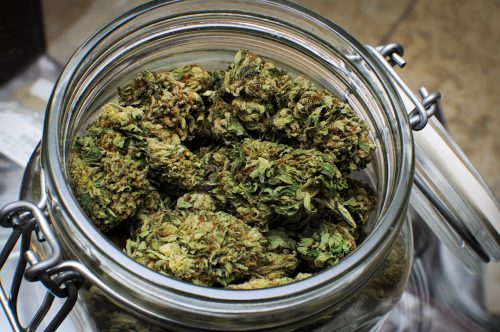In a new study, Yale researchers have pinpointed a specific gene responsible for regulating cannabis-induced aggression, with strong ramifications for the national discussion of cannabis legalization. Led by Janitza Montalvo-Ortiz, Assistant Professor of Psychiatry at the Yale School of Medicine, the research group implicated the serotonin 2B receptor gene (HTR2B) as the mediator between cannabis and aggressive behavior. Variance within the serotonin system, the brain’s emotional regulator, has previously been linked to impulsivity and violent behavior. The researchers scanned millions of nucleotides, the fundamental units of DNA, in a hypothesis-free genome-wide association study (GWAS) of cannabis-related physical aggression. They were surprised when this method specifically identified a result within the serotonin system. The finding, according to Montalvo-Ortiz, confirms the relationship between serotonin signaling and impulsivity.
The group analyzed the genomes cannabis-using African American and European American subjects and surveyed them on whether they had ever exhibited violent behavior while under the influence. Analysis of these results identified a common genetic variance in the 2B receptor genes of those subjects who had demonstrated such behavior. Those possessing the variance in the gene, known as a “risk allele,” are more prone to aggression. “It’s hard for people to believe that cannabis can make you more aggressive,” said Montalvo-Ortiz. “There are some people who are more relaxed by cannabis. This provides a genetic, scientific explanation for the varying effects of the drug.”
In partnership with the French National Institute of Health and Medical Research, the group confirmed the role of the 2B receptor gene by testing mice’s responses to cannabis. Some mice were genetically normal, while others had the 2B receptor gene deleted from their genome. All were administered THC, and observation revealed that the “knockout” mice lacking the 2B gene exhibited hyperactivity, aggression, and impulsivity, further demonstrating that the gene moderates the effect of cannabis on aggressive behavior.
The results are particularly relevant to the national debate over cannabis legalization and usage. Montalvo-Ortiz thinks more information on the drug’s virtues and shortcomings must be made available. Her team recently identified genetic risk variants associated with cannabis dependence, and she cautions against viewing cannabis as a panacea, especially in light of the confirmed link between cannabis usage and psychiatric disorders including schizophrenia and depression. “We currently prescribe it for disorders that we don’t have the scientific evidence to justify,” she said. “We need more research on the benefits and the risk factors so that decisions made by the public, medical or recreational, are based on good scientific standing.”
Subsequent research could focus on brain imaging, which could link risk allele modifications of behavior and the physical processes occurring in the brain. Montalvo-Ortiz would also like to see testing continued in order to differentiate between the effects of THC and cannabis oil. Montalvo-Ortiz knows her findings have opened further avenues for cannabis research. “I think there’s a lot of research that could be done. This is just the tip of the iceberg, and it deserves deeper understanding.”

